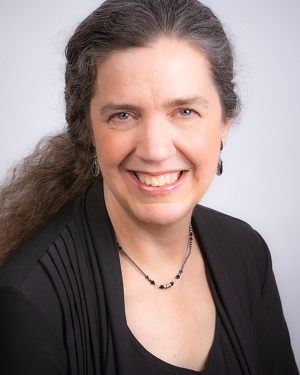Time marches on in Cantate Chamber Singers’ uneven season opener

Victoria Gau led Cantate Chamber Singers’ season-opening concert Saturday night at Bethesda Presbyterian Church.
The Cantate Chamber Singers opened the new season on Saturday evening, with a program of choral music on the theme of morning and evening. Artistic director Victoria Gau conducted this 90-minute concert, performed without intermission, in the sanctuary of Bethesda Presbyterian Church.
The ensemble’s sound could be warm and balanced in slow and hushed moments, revealing a depth of musicality from Gau and her musicians. Louder and more exposed sections revealed wayward intonation, especially from the soprano section. The male side of the group was particularly weak, due to a reported Covid outbreak in the tenor section. This required some coverage from the altos and basses, which further destabilized the blend.
The bisectional shifting was evident in “Ecco mormorar l’onde,” a madrigal from Claudio Monteverdi’s second book. In the work’s unaccompanied five-voice texture, with two tenor parts, the twenty-two singers present compensated relatively well. The low bass part sounded reserved, making it difficult to discern if the optional low C, often added to the final cadence, was there or not.
Gau’s more recent selections varied in quality. “Dawn,” by Eric William Barnum, was a pallid example of the Stylus Whitacreus. Sentimental harmonies in homophonic texture set a saccharine text by Robert Bode, and the piece petered out in an odd way at its conclusion. “The Waking,” composed by Giselle Wyers on a classic text by the distinguished Michigan-born poet Theodore Roethke, offered greater musical interest, although with wilting high notes from the sopranos.
Clément Janequin’s programmatic chanson “Le Chant des Oiseaux” provided comic relief. The singers added avian effects to the quickly quipped bird calls of this celebrated piece, but the piece did not sparkle the way it should.
Two lush song arrangements proved the highlights of this mixed evening: H.T. Burleigh’s nostalgic spiritual “My Lord, What a Morning” and Shawn Kirchner’s Appalachian song “Bright Morning Stars.” The latter featured a pleasing solo from Devin Osborne, who was joined by three other men in an effective quartet.
Other offerings fell flat in different ways. John Bennet’s English Renaissance madrigal “All Creatures Now Are Merry-minded” lacked the freedom and virtuosity needed for its solo-like parts. The six-voice “Abendlied,” with doubled soprano and tenor parts, needed a much larger romantic sweep. When the nightingale, heard in the Janequin work, made a return in Brahms’ “O schöne Nacht,” the sopranos did not exactly take wing.
The text of György Orbán’s Daemon Irrepit Callidus had nothing to do with the supposed theme of night. Derived from a Goliardic hymn, it felt of a piece with the worldly Latin texts of Carmina Burana, a likeness reinforced by Orbán’s driving rhythmic style. Slithering chromatic lines and pulsing ostinatos seemed to belie, perhaps with a wink, the text’s assertion that Jesus was worth more than the earthly temptations breathlessly cataloged.
One of the three pieces by Z. Randall Stroope on this program likely would have sufficed. The slow-moving “Noche Serena” ran on too long, and the otherwise exciting “Dies Irae” also had little to do with the program’s theme. Stroope’s “Sure on This Shining Night” was the most effective, with an able solo by soprano Ellen Kliman. William Averitt’s arrangement of the famous Welsh tune “All through the Night” closed out the evening quietly.
Pianist Andrew Earle Simpson accompanied many of the pieces with sensitivity and skill. He introduced each half of the program with a movement from his own piece, Flower-Terrible Memories. The chaotic opener, “Stars,” began with a bang, as Simpson warned the audience it would, followed by an extended clamor of hammered octaves, clusters, and tremolos. His second piece, “the feet of april,” offered a much calmer introduction to the second half.
A note to the presenter: for future events in this church, it would be better to turn off the air-handler for the duration of the music. It rumbled noisily off and on several times throughout the concert.
Cantate Young Artists of Color presents a concert of music by Ronald Walton III, featuring the composer and other musicians 5 p.m. October 28. cantate.org
